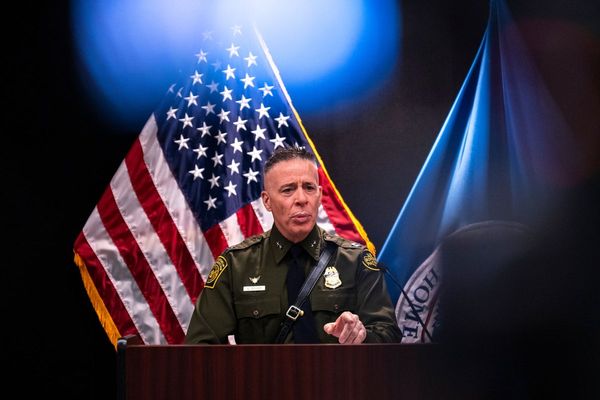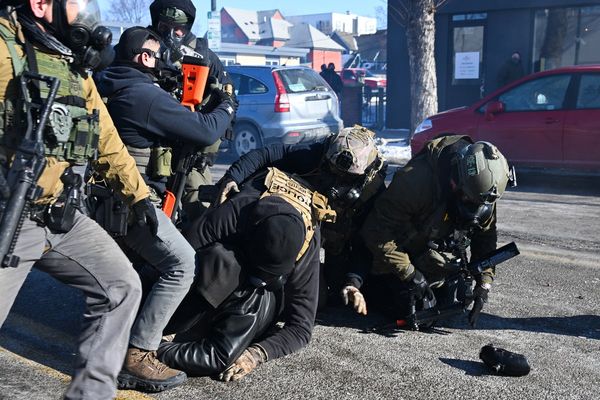Ronnie Gorrie, a Gunai/Kurnai woman from Victoria and a former Queensland police officer, has condemned the New York Times over its obituary of Uncle Jack Charles.
Ms Gorrie, who knew celebrated actor and activist Uncle Jack personally, described the obituary as insensitive and culturally inappropriate.
NOTE: This story uses Uncle Jack Charles's name and image with the permission of his family.
"Uncle Jack Charles was a well-respected Elder in our community," Ms Gorrie said.
"His death has rocked Australia and certainly Victoria, so I do appreciate the untimely death of him has reached the shores of New York.
"I did find the initial story, and the headline quite atrocious and upsetting."
Uncle Jack, a Boon Wurrung, Dja Dja Wurrung, Woiwurrung and Yorta Yorta man, died peacefully at the age of 79 on September 13 after suffering a stroke.
The lede paragraph of the New York Times story initially read:
MELBOURNE, Australia — Jack Charles, one of Australia's leading Indigenous actors, who has been called the "grandfather of Aboriginal theatre" but whose heroin addiction and penchant for burglary landed him in and out of jail throughout his life, died on September 13 in Melbourne. He was 79.
It was updated to read:
MELBOURNE, Australia — Jack Charles, one of Australia's leading Indigenous actors and activists, who has been called the "grandfather of Aboriginal theatre" and who spent years in prison for burglaries that he saw as acts of reparations, died on September 13 in Melbourne. He was 79.
"Culturally, it's quite disrespectful to speak ill of our dead," Ms Gorrie said.
"So, it's really triggering for us mob, for Blackfellas to see this written about him. And to portray him for his past is quite disgusting.
"I do feel for the family, who would have been definitely traumatised for what they read. It's very upsetting."
Ms Gorrie said the article received backlash on Twitter before it was amended.
The New York Times also used the term "so-called" when referring to the Stolen Generations. The phrase has since been removed.
"Firstly, if you're going to write about an Aboriginal person that is a Stolen Generation survivor, know the history," Ms Gorrie said.
"Don't refer to it as 'so-called' as if you're implying that it never happened.
"Right now, the Victorian government are compensating survivors and victims of the Stolen Generation. My grandmother was stolen at the age of eight years old.
"My father was stolen from her the minute she gave birth to him, so I find that quite offensive and quite upsetting as well."
The bureau chief for the New York Times in Australia, Damien Cave, on Thursday tweeted about the edit and the deletion of an original tweet, which read:
@nytimesarts "Jack Charles was one of Australia's leading Indigenous actors, but his heroin addiction and penchant for burglary landed him in and out of jail throughout his life."
The ABC contacted the New York Times for further comment and was told they didn't have anything to add at this point.
Talk of criminal past a sore point
Ms Gorrie spent a decade from 2002 to 2012 as a officer for Queensland police, writing about her experiences in Black and Blue: a Memoir of Racism and Resilience.
She said racial profiling of Indigenous people by police was an epidemic.
"White Australia has this assumption that all black men are violent and criminal, when they're not," she said.
"I've raised an amazing Aboriginal man. My father's an incredible Aboriginal man. And Uncle Jack was an incredible Aboriginal man.
"I just know from my time in the police how cops racially profile.
"If you're an Aboriginal person, you will be intercepted, you will be detained, you will be searched if you're deemed to be a smart-arse.
"They will make it difficult, and they'll find charges, and they'll load them up on you."
Jeffery Amatto is a proud Wiradjuri man from Wellington NSW and the founder of More Cultural Rehabs Less Jails.
He never met Uncle Jack, but had interacted with him on LinkedIn.
"He was a very strong advocate for our people and how broken the system really is," Mr Amatto said.
"He was a very inspirational man and he definitely led the way for us younger generation to start stepping up and speaking our mind."
Mr Amatto has spent time in the criminal justice system and said police were too quick to lock up Aboriginal and Torres Strait Islander people.
"If we want help with our trauma and our addictions and alcoholism and mental health, sometimes, we have to wait up to eight to nine weeks to get it and that's not even guaranteeing a bed in a cultural-based rehab — where the magic happened for me," he said.
Mr Amatto consults in communities that need treatment centres, helps roll out programs with youth and works with people who are coming out of custody.
Mr Amatto said jail was not the solution.
"We can't get well in a jail cell. Don't tell me prisons are rehabilitating our people, because it's not," he said.
"You've got to start having us around the table and having our input into the big decisions now if we want to close the gap."







